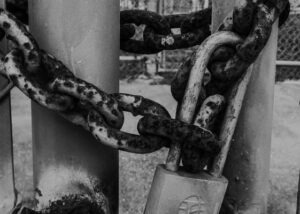Do Scholars say it is Haram to speak out against leaders? What are the views of Sunni scholars on this?
Quran
Hadith
Islamic Text
بِسْمِ اللَّهِ الرَّحْمَنِ الرَّحِيمِ
In the Name of Allah Most Merciful Most Kind
Short Answer
No, scholars do not say that it is Haram to speak out against Muslim leaders when they engage in sin and evil publicly. There is some difference of opinion with regards to speaking out against leaders. However, the difference is not regarding permissibility or prohibition. Rather, it is regarding the situations in which it is obligatory.
مَنْ رَأَى مِنْكُمْ مُنْكَرًا فَلْيُغَيِّرْهُ بِيَدِهِ، فَإِنْ لَمْ يَسْتَطِعْ فَبِلِسَانِهِ، فَإِنْ لَمْ يَسْتَطِعْ فَبِقَلْبِهِ، وَذَلِكَ أَضْعَفُ الْإِيمَانِ
The Messenger of Allah ﷺ said, ‘Whoever amongst you sees evil, let him change it with his hand. If he is not able, then with his tongue. If he is unable, then with his heart. And that is the weakest of faith.’ (Sahih Muslim, 49 – 78).
As Muslims we are obliged to oppose sin and evil. With regards to rulers, we are unable to physically oppose them as that would be rebellion. Therefore, we must denounce with the tongue. If that is not possible then the weakest of Iman is to detest it in one’s heart.
Public rebuke is best
فإن قال قائل: فإن الإنكار على الأمراء في العلانية من السنة لما روى سفيان عن علقمة بن مرثد، عن طارق بن شهاب: أن رجلاً سأل النبي – صلى الله عليه وسلم – أي الجهاد أفضل؟ قال: كلمة حق عند سلطان جائر
قال الطبري: قد اختلف السلف قبلنا في تأويل هذا الحديث فقال بعضهم: إنما عنى النبي – صلى الله عليه وسلم – بقوله: كلمة حق عند سلطان جائر, إذا أمن على نفسه القتل أو أن يلحقه من البلاء ما لا قبل له به، هذا مذهب أسامة بن زيد، وروى ذلك عن ابن مسعود وابن عباس وحذيفة. (شرح صحيح البخارى لابن بطال)
If someone were to say: Rebuke of leaders in public is part of the Sunnah, as Sufyan narrated from Alqamah bin Marthad, from Tariq bin Shihab: A man asked the Prophet ﷺ which Jihad is best? He ﷺ said: ‘A word of truth before an unjust ruler.’
Al-Tabari said: The predecessors before us differed in interpreting this Hadith. Some of them said: What the Prophet ﷺ meant by, ‘A word of truth before an unjust ruler,’ is if he is secure from being killed or a calamity he cannot endure. This is the view of Usamah bin Zaid, and it was narrated from Ibn Masoud, Ibn Abbas, and Hudhayfah. (Imam Ibn Battal, Sharh Sahih al-Bukhari).
In the Nass above, Imam al-Tabari mentions some Ikhtilaaf (difference of opinion) amongst the Salaf regarding rebuking the rulers publicly. As he continues to explain the Ikhtilaaf you will see that he does not mention an opinion saying it is Haram. Rather, the discussion is regarding the obligation of public criticism. Namely, is it obligatory and when does the obligation drop.
When public rebuke is difficult
وقال آخرون: الواجبُ على من رأى منكرًا من ذي سلطان أن ينكره علانيةً وكيف أمكنه، روى ذلك عن عمر بن الخطاب وأبىّ بن كعب، واحتجوا بقوله – صلى الله عليه وسلم -: من رأى منكم منكرًا فليغيره بيده، فإن لم يستطيع فبلسانه، فإن لم يستطيع فبقلبه، وذلك أضعف الإيمان. وبقوله: إذا هابت أمتى أن تقول للظالم: يا ظالم، فقد تودع منهم
وقال آخرون: من رأى من سلطانه منكرًا فالواجب عليه أن ينكره بقلبه دون لسانه، واحتجوا بحديث أم سلمة عن النبي – صلى الله عليه وسلم – أنه قال: يستعمل عليكم أمراء بعدى، تعرفون وتنكرون، فمن كره فقد برئ، ومن أنكر فقد سلم، ولكن من رضى وتابع، قالوا: يا رسول الله، أفلا نقاتلهم؟ قال: لا، ما صلوا
قال الطبري: والصّواب: أن الواجب على كل من رأى منكرًا أن ينكره إذا لم يخف على نفسه عقوبة لا قبل له بها؛ لورود الأخبار عن النبي – صلى الله عليه وسلم – بالسمع والطاعة للأئمة، وقوله – صلى الله عليه وسلم -: لا ينبغي للمؤمن أن يذل نفسه. قالوا: وكيف يذل نفسه؟ قال: يتعرض من البلاء ما لا يطيق. (شرح صحيح البخاري لابن بطال)
Others said: It is obligatory for anyone who sees an evil from a ruler to denounce it publicly, in any way possible. This was narrated from Umar ibn al-Khattab and Ubayy ibn Ka’b. They used his ﷺ statement as evidence: ‘Whoever sees an evil let him change it with his hand. If he is not able, then with his tongue. If he is unable, then with his heart. And that is the weakest of faith.’ And also, his ﷺ statement: ‘If you see my nation being afraid to say to the oppressor, O oppressor, then bid them farewell.’
Others said: Whoever sees evil from his leader then the obligation is to denounce it in his heart and not with his tongue. They used as evidence the Hadith of (Sayidah) Umm Salamah from the Prophet ﷺ that he said: ‘Amirs will be appointed over you. You will find that which you recognise and that which you reject. The one who hates (their bad deeds) is absolved from blame. The one who condemns will be safe. But the one who approves and follows (is doomed).’ They asked: O Messenger of Allah ﷺ, should we not fight them? He ﷺ replied, ‘No, so long as they pray.’
Al-Tabari said: The correct view is that anyone who sees an evil must denounce it if he does not fear a punishment he cannot endure. This is due to the narrations from the Prophet ﷺ about hearing and obeying the leaders. And his statement ﷺ: ‘It is not appropriate for the believer to humiliate himself.’ They said: How does he humiliate himself? He ﷺ said: ‘He exposes himself to difficulty that he cannot endure.’ (Imam Ibn Battal, Sharh Sahih al-Bukhari).
The above explanation by Imam al-Tabari was also mentioned by Ibn al-Mulaqin (al-Tawdeeh) and others. Despite the detailed presentation by Imam al-Tabari, there was no mention of it being prohibited to speak out against leaders.
Therefore, brothers who are saying it is Haram to speak out against leaders are either presenting a minority opinion or an innovated opinion. If it is a minority opinion, then they should provide precise references to substantiate such positions. In any case, we have been advised to stick with the majority.
Establishing truth
فَإِن لم يُمكن الْوَعْظ سرا فليجعله عَلَانيَة لِئَلَّا يضيع الْحق لما روى طَارق بن شهَاب قَالَ قَالَ رَسُول الله – صَلَّى اللَّهُ عَلَيْهِ وَسَلَّم َ – ” أفضل الْجِهَاد كلمة حق عِنْد سُلْطَان جَائِر ” وَأخرجه التِّرْمِذِيّ من حَدِيث أبي سعيد بِإِسْنَاد حسن. (عمدة القاري شرح صحيح البخاري)
If it is not possible to exhort in private, then make it public so that the truth is not lost. Due to the narration of Tariq bin Shihab. He said: The Messenger of Allah ﷺ said, ‘The best jihad is a word of truth before an unjust ruler.’ (Imam) al-Tirmidhi narrated it from (Sayidina) Abu Sa’id with a Hasan chain of transmission. (Imam al-Ayni, Umdatu al-Qari Sharh Saih al-Bukhari).
There are many concerns with not speaking out against leaders when they commit sin publicly. Firstly, we fail in our duty to oppose evil. Secondly, the leader will feel emboldened to continue. Thirdly, people may believe it is permitted since scholars are not speaking against it. Fourthly, oppression and corruption will spread throughout the land.
And Allah Most High Knows Best.
–Answered by Shaykh Noorud-deen Rashid (08.11.23)






